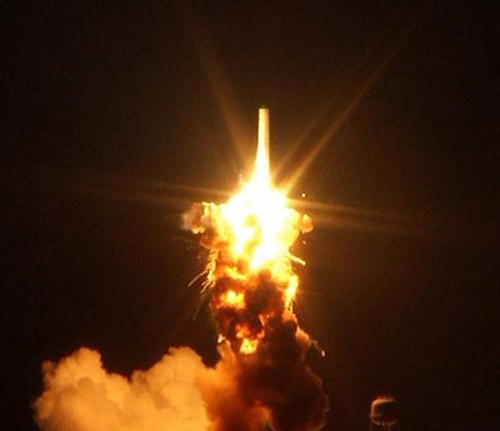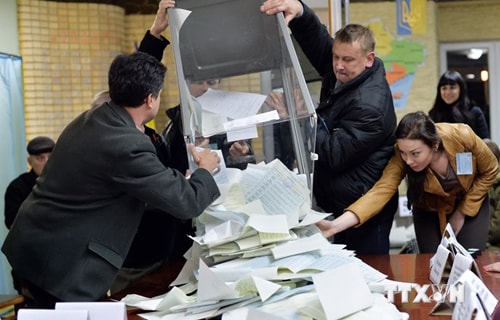Russia - America: What goes around comes around?
(Baonghean) - Through expressing views and actions in resolving hot spots, conflicts and disputes that have the potential to change the world situation, it can be affirmed that there are too many problems between Russia and the US to form a confrontational relationship. Looking at it more broadly, it can be seen that the Russia-US relationship has fallen into the worst period since the end of the Cold War. Yet, Russia still offers to be ready to deliver goods into space to help the US, what does that mean?
Immediately after the US Antares rocket from the US National Aeronautics and Space Administration (NASA) base in Wallops, Virginia exploded after only 6 seconds of launch on October 28, Russia immediately announced that it was ready to help the US transport cargo to the International Space Station (ISS). This move was made while both Russia and the US were having conflicting interests surrounding the election in Ukraine, which surprised the world public. Are things “in the sky” and things “on the ground” really unrelated?
 |
| The Antares rocket exploded after leaving the launch pad. |
First of all, the “underground” story, the unfavorable developments are too fast for the current pro-American government of President Petro Poroshenko to handle. The US and the West are trying every way to prevent Russia from recognizing the results of the parliamentary elections in eastern Ukraine. US Secretary of State John Kerry warned that Russia and the separatists would violate international agreements if they recognized the parliamentary elections in eastern Ukraine in early November. The reason the US is concerned about this is because once Russia recognizes the election results in favor of the separatists, the separatist government will be considered legalized. At this time, the administrative apparatus of the Poroshenko government will not only be “broken” in the eastern region, the peace process in Ukraine will become more distant, but the risk of independence like the “Crimea phenomenon” is inevitable.
 |
| Counting votes at a polling station in Kramatorsk, eastern Ukraine. |
Therefore, the US and the West not only do not recognize this, but also strongly oppose Russia's intention to recognize it. On the contrary, there is no way that Mr. Putin's government will leave the "buffer zone" that maintains its power in Eastern Ukraine. While US Secretary of State John Kerry declared that "the US and the international community will not recognize the so-called elections of the separatists if these elections do not take place within the framework of a special law passed by the Ukrainian parliament and signed by President Poroshenko", the Moscow government has announced its intention to recognize the results of the parliamentary elections that took place in early November in Donetsk and Luhansk. Obviously, on the "ground" between Russia and the US, there are opposing views, and that can be considered an antagonistic contradiction.
However, at the same time when the situation “on the ground” was tense, the situation “in the sky” was taking a different turn. When they heard that the Antares rocket carrying about 2.5 tons of cargo including food, supplies, and scientific experiments had exploded into ashes in mid-air, Russia immediately sent a message that it was ready to help. Perhaps, the Americans were always in control of the situation, and did not want to lose face in terms of space science, so they did not accept Russia's request for help.
As for Russia, do they think that their willingness to support the US is simply a “borderless” matter between scientists? In fact, Russia and the US have a mutual assistance agreement between the Russian Federal Space Agency Roscosmos and NASA. This agreement states that if a need arises, such as after the loss of a cargo ship or other emergencies, the parties are willing to support each other to the best of their ability. And in terms of space research, the relationship between Russia and the US is a partnership. Therefore, in this case, Russia's expressed intention to help is an action within the framework of the partnership between the two countries' space research agencies. It is known that on October 29, Russia successfully launched the Progress M-25M spacecraft, carrying nearly 3 tons of food, fuel and equipment for the ISS, using a Soyuz rocket from Kazakhstan.
The complicated developments in the Russia-US relationship show that this is also a common feature in many international relations today. The situation in bilateral and multilateral relations where cooperation and struggle are intertwined like a “bagua diagram” has become a trend. Therefore, it is possible that “in heaven” and “on earth” things are different, struggles still have to be fought, but mutual support is another matter!
CLS






